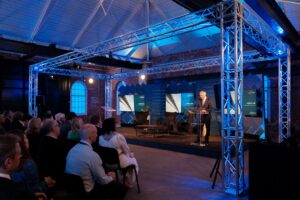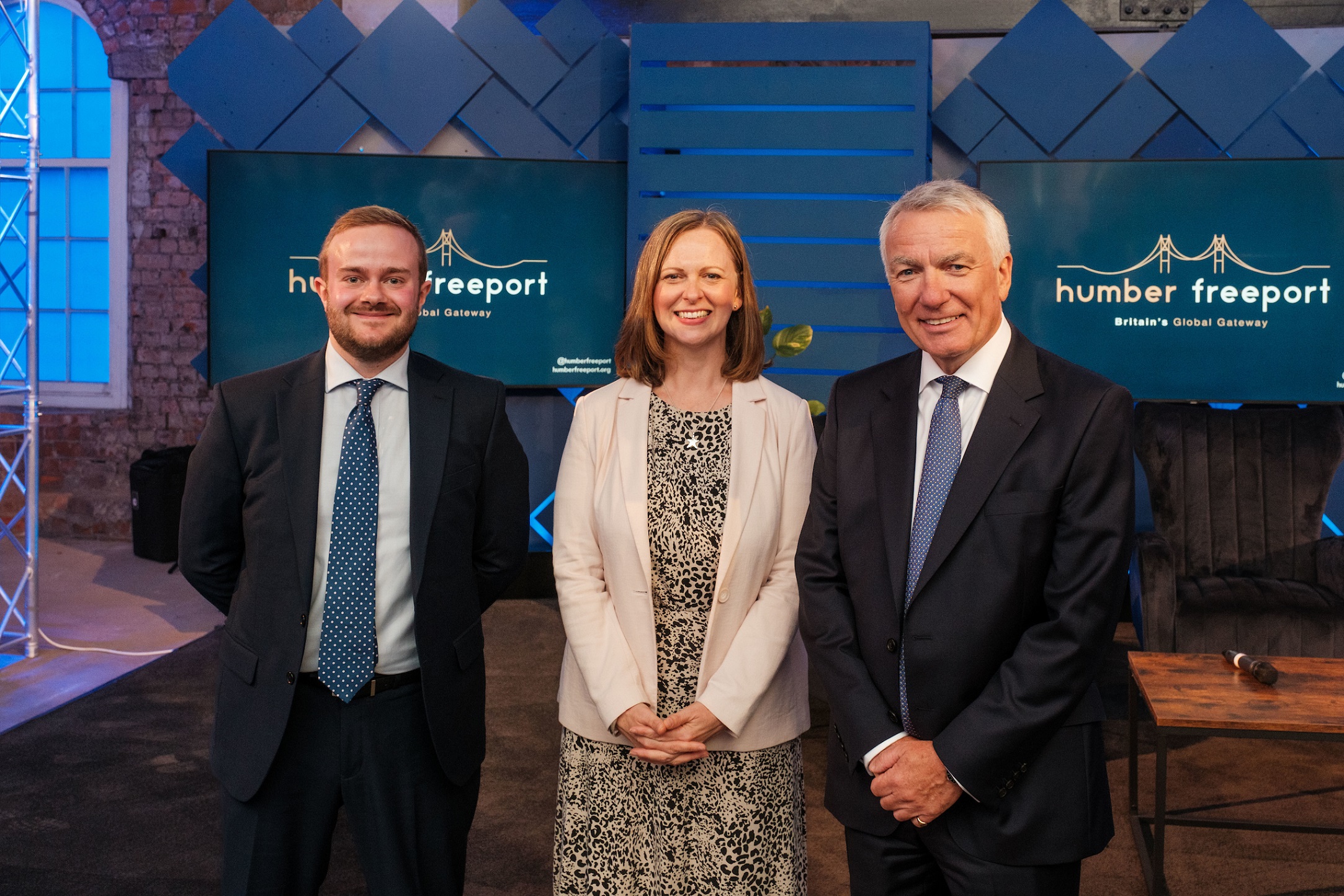Humber Freeport has launched with a mission to drive hundreds of millions of pounds of investment and at least 7,000 new jobs.
The freeport will harness the unique potential and location of the Humber to stimulate economic growth, skills development and inward investment in both established and emerging industries.
Huge opportunities to build on the region’s fast-growing renewable energy industries have already been identified, as well as potential investment in the chemicals, logistics, advanced manufacturing and technology sectors.
Humber Freeport was officially launched at a VIP event at Associated British Ports’ Pump House at Hull’s Alexandra Dock – a stone’s throw from Siemens Gamesa’s wind turbine blade manufacturing facility.
With links both to the region’s rich maritime past and the offshore wind industry, which is a key part of the Humber’s exciting present and future, the Grade-II listed Pump House provided a fitting backdrop for the official launch of Humber Freeport.
The event, attended by leading figures from the public and private sectors, marked the establishment of the Humber Freeport Company Ltd and signals that the organisation is now fully up and running.

Speaking at the event, Humber Freeport Chair Simon Bird said: “The Humber Freeport has an outstanding and potentially unique opportunity to be not merely a source for economic growth, but the primary vehicle for the delivery of the Government’s levelling up agenda in the Humber.
“Humber Freeport will seek to secure hundreds of millions of pounds of private sector investment and the final business case conservatively estimates that such investment will create at least 7,000 new, mostly skilled, jobs.
“This investment will have a transformative effect in lifting the prospects of the region.”
Mr Bird outlined the benefits freeport status brings to companies investing in the tax and customs sites within the Humber Freeport footprint on both banks of the Humber Estuary.
Humber Freeport comprises of three defined tax sites – Hull East; Able Marine Energy Park and Immingham, on the south bank of the Humber; and Goole – each of which offers incentives for businesses operating within the zones.
Benefits include land tax relief, business rate relief, enhanced capital allowances and National Insurance contribution relief for employers.
In addition, a new customs zone which has been created at Grimsby will help unlock growth in the car handling and storage sector, supporting the growth of the electric car industry.

Mr Bird said investors also benefit from “assumed permitted development rights to speed up the planning process” and that “when added to being adjacent to high-quality port operations, the offer becomes even more appealing”.
Mr Bird was joined as a speaker at the launch event by Michael Green, Head of Freeports at the Department for Business and Trade.
Mr Green coordinates the department’s work to establish freeports as national hubs for global trade and investment and promote their attractiveness to prospective investors and export markets overseas.
He said: “Freeports represent a generational shift. Inward investment is hugely important for job creation and regeneration and we are looking to build on the UK’s centres of excellence with targeted Government support.
“Humber Freeport will play a key role in decarbonising industry in what is the largest industrial cluster in the UK.
“It will ensure the region makes the most of the unique assets it holds. Being within four hours of most areas of the UK, the size of opportunity here in the Humber should not be underestimated.”
Freeport status will enable the Humber to maximise opportunities from the net zero transition, in offshore wind and other low carbon technologies, creating highly-skilled jobs and driving investment.
As the largest energy-related cluster in north west Europe, the Humber is often referred to as the UK’s Energy Estuary.

Decarbonisation is one of three key workstreams established by Humber Freeport, alongside skills and innovation, and will be a key focus for the freeport’s work.
Humber Freeport will build on significant ongoing investment in the region, including plans by Meld Energy to invest £180m in a green hydrogen production facility at Saltend Chemicals Park, east of Hull, which sits within the freeport footprint.
At Goole, Siemens Mobility is investing up to £200m in a rail manufacturing facility, where tube trains for London’s Piccadilly line will be built. The factory is the heart of a growing rail village encompassing manufacturing, servicing and research and development facilities.
Jo Barnes is the Managing Director at Sewell Estates, a key partner in the Yorkshire Energy Park, east of Hull, which is set to be the UK’s first freeport-based energy and technology business park.
Speaking at the launch event, she said: “Securing freeport status is a huge opportunity for the Humber. It will significantly raise the profile of the area to potential end users and investors on the global stage.
“We’ve already got early evidence of this at Yorkshire Energy Park, with our site moving forward confidently and early site works planned for later this year in anticipation of construction commencing next year.
“The benefits are not just financial either. It’s been great to see freeport partners working together for mutual benefit, from commercial partnerships to directing end user interest or working with statutory agencies. We can tell a more coherent story about the area’s potential and the freeport can act as a catalyst for solid and sustainable growth.”



Join the discussion One Comment